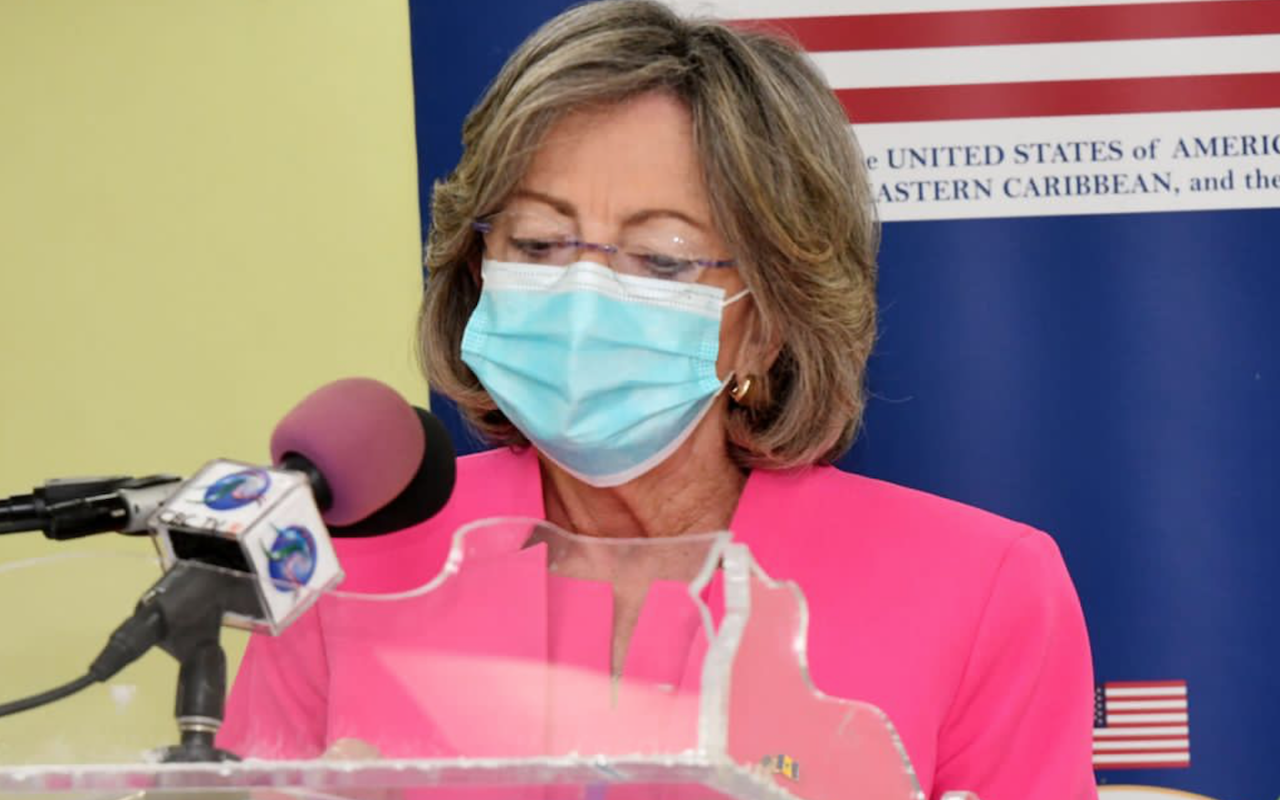As Barbados and other Caribbean countries continue to grapple with a high rate of vaccine hesitancy, and with thousands of doses of the vaccine nearing expiration, the United States Embassy in Bridgetown is lending its voice to vaccine discussions hoping to allay fears and encourage people to take the jab.
US Ambassador Linda Taglialatela expressed grief that too many people in the region continued to die from COVID-19.
She said it was for that reason the US remained committed to sharing its resources “to end this pandemic”.
“We have donated more than 110 million vaccine doses directly to 60 countries,” she said, as she reminded the audience that the US had pledged 5.5 million doses of vaccines to the Caribbean Community.
However, Taglialatela said: “The good news is that the vaccines are available. The bad news is that not enough people are taking the life-saving shot. There are doses that will soon expire right here in Barbados.”
Earlier this week, officials associated with the National Vaccination Programme sounded the alarm that a batch of the AstraZeneca vaccines would be expiring at the end of October, and they were therefore urging more Barbadians to come forward for the jab.
The island received its first batch of Oxford AstraZeneca vaccines at the start of April this year. The country subsequently received more vaccines.
Prime Minister Mia Mottley indicated recently that she would like to see at least some 10,000 people being vaccinated over the next five weeks.
A total of just over 128,160 people in Barbados have received at least one dose of a COVID-19 vaccine since the vaccination campaign started in late February.
The percentage of the adult population considered fully vaccinated is 36.6 per cent or just over 99,117, as at September 21.
During the embassy’s Facebook live session on Thursday – Get the Facts on the Vax! – with Dr Varough Deyde, Caribbean Regional Office Director with the Centre for Disease Control and Prevention (CDC), people had the opportunity to ask questions regarding the COVID-19 vaccines.
They mostly queried the efficacy and safety of the vaccines, with Dr Deyde saying “It is strongly recommended that everyone gets vaccinated. These vaccines have been proven to be safe and effective. They help protect us and our families.
“Even if you still get infected after taking your vaccine, it will likely prevent you from getting seriously ill, getting hospitalized or dying. The vast majority of the cases we see today in the Caribbean and globally in the hospitals are people who did not get vaccinated,” he said.
Dr Deyde said while there were side effects from taking the COVID-19 shots, it was a “common” occurrence as the vaccine does what it is supposed to do which is to “stimulate our body to react to the content of the vaccine”.
He said that waiting to get natural immunity was not the best bet.
“We don’t know how long natural immunity lasts and we don’t know how good that immunity in each individual is”.
“Therefore, because we don’t know how long this immunity or how good this immunity is, it is better to get the vaccine to provide that immunity that has been tested,” he said.
Insisting that the vaccines were new but proven to be safe and effective, Dr Deyde said current data suggests their effectiveness last at least six months.
“We also know that some vaccines have longer than the six months and we are still observing and looking at the data since these vaccines have started,” he said, adding that currently there was no evidence that the vaccines can have any long-term side effects.
While advising that anyone with underlying health conditions should first speak with their medical doctor before taking the vaccine, Dr Deyde said “The general recommendation is that those who have underlying conditions are among the population who are at higher risk of getting the worse outcome if infected with COVID-19.
“So yes, they should be taking the COVID-19 vaccine if they are severely immune-compromised or have conditions that cause them to have immune response deficiencies,” he said.
Dr Deyde gave the assurance that there was no evidence to suggest that any of the COVID-19 vaccines or any other vaccines cause fertility problems.
(marlonmadden@barbadostoday.bb)




